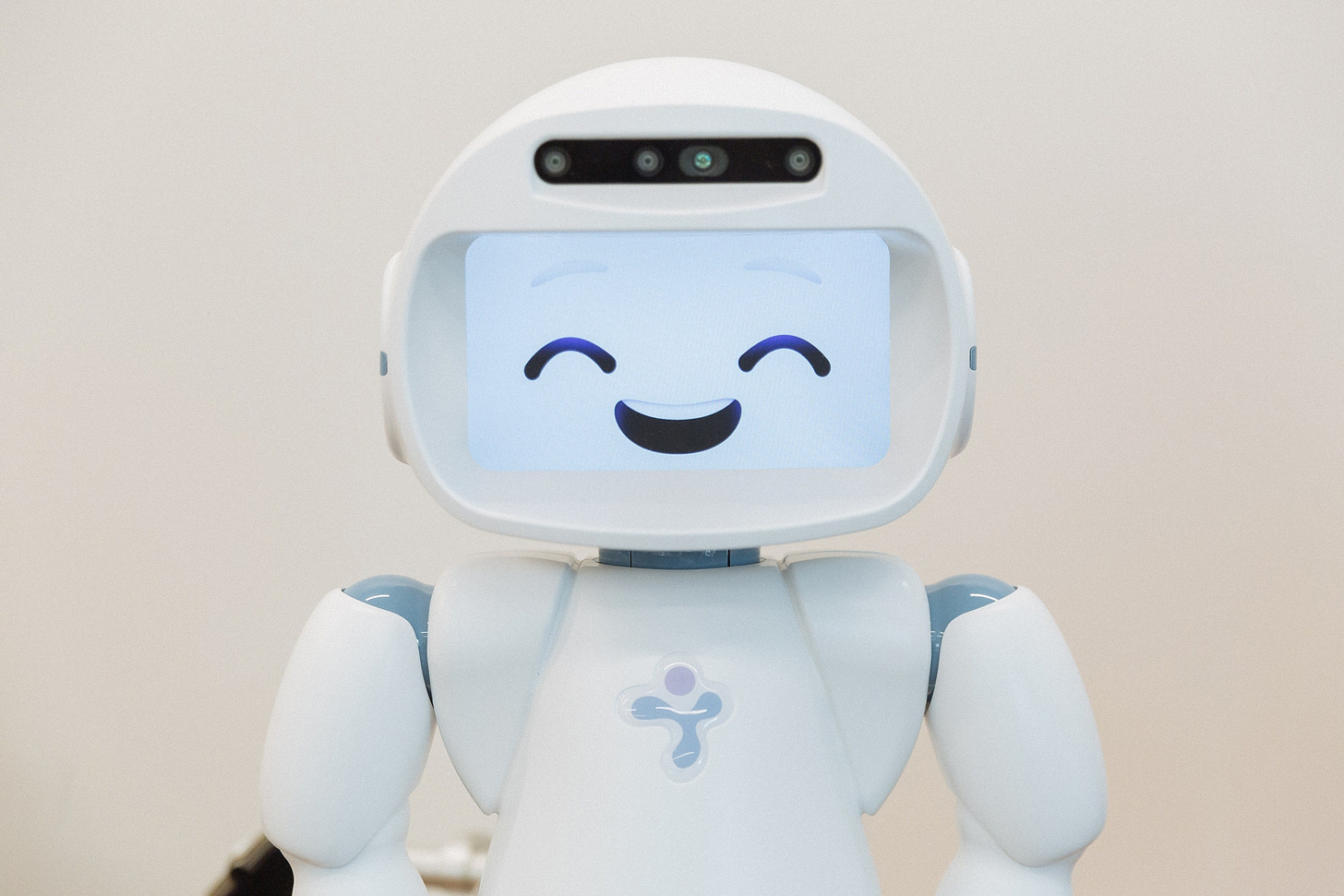Social Robots, Snapchat+, Google, Samsung, and Mickey Mouse
Weekly Roundup of AI, Technology, and UX
If you haven’t followed us on Tiktok or Twitter, now is a great chance.
Here’s the latest news, resources, and use cases from the world of product, UX, AI and technology. Let’s go:
🤖 Social Robots
💭 Snapchat+
✂️ Google Layoffs
🔍 Bard
📱 Galaxy S24
🧓 Dementia
🐭 Mickey Mouse
Podcast
Experimenting, Learning, and Growing - A Conversation with Lee St. James, Founder of Social Robots
Social robots started as Lee saw the problem of loneliness and isolation in retirement homes, as her own father needed more and more care. And she took up the cause right before Covid-19 hit, creating Social Robots and piloting them in several locations. She has learned an amazing number of lessons building a company, testing new ideas and new markets, and creating solutions to significant problems many of us are facing in our families today. From starting simple, to prioritizing privacy, to collaboration with retirement home staffs to create meaningful experiences. Listen in for some great product management and UX insights.
News and Useful Reads
The First Hit Generative AI Product After ChatGPT? Somehow, It’s Snapchat+
Though ChatGPT debuted as the fastest-growing new consumer product ever, its underlying technology may be best used in Snapchat+ style experiences — not complete reimaginations of computing — at least for now.
Google likely to layoff 30,000 employees post new AI innovation
While CEOs will point toward AI, the cynic in me continues to believe that these companies would have done layoffs one way or another. AI is just a convenient excuse.
According to a recent report from The Information, Google is considering a substantial workforce reduction, potentially affecting up to 30,000 employees, as part of a strategic move to integrate AI into various aspects of its business processes.
The proposed restructuring is anticipated to primarily impact Google's ad sales department, where the company is exploring the benefits of leveraging AI for operational efficiency.
Google appears to be working on an ‘advanced’ version of Bard that you have to pay for
And speaking of Google AI, they may have a more advanced model coming soon.
Google appears to be working on an upgraded version of Bard called “Bard Advanced” that will be available through a paid subscription to Google One, as shared by developer Dylan Roussel on X (formerly Twitter).
Some of the Samsung Galaxy S24's key AI features just leaked
I’m a Samsung Galaxy fanboy. I’ve been using these phones since the Note 3, and am currently on the S22. So news of the Galaxy S24 is exactly what I want to hear about, because without a doubt I’ll be getting one. And it seems like they’ll be leaning heavily into AI:
Rumors around AI being a significant part of the appeal of the Samsung Galaxy S24 have been appearing for months now, and previous leaks have pointed to features such as an audio recorder that can automatically transcribe speech from up to 10 different voices.
My Parents’ Dementia Felt Like the End of Joy. Then Came the Robots
Much like the podcast discussion above, the ability of robots to truly help in a variety of areas, especially with care of elderly, is fascinating. It’s not about building robots, it’s about solving human problems:
Instead, the roboticists I learned about are trained in anthropology, psychology, design, and other human-centric fields. They partner with people with dementia, who do not want robots to solve the alleged problem of being old. They want technology for joy and for flourishing, even as they near the end of life.
Other Interesting Finds
The internet copyright machine wasn’t made for Mickey Mouse
The earliest version of Mickey Mouse has now passed into the public domain. But what does that mean? It’s hard to tell, really. Because copyright laws are a mess, and enforcement depends on the different platforms and interpretation. I know I’ve run into this many times with work that I do. Copyright holders, in my opinion, can wield far too much power with vague copyrights because the rules we have just aren’t made for the current age.
Separate from public domain freedoms, US fair use law allows for parodies and commentaries on a copyrighted work, so some of these explicitly subversive takes on Mickey might have been legal even before this week. It’s hard to say for sure, because fair use isn’t a simple flowchart of cut-and-dried rules; it requires a case-by-case call balancing several factors. Relying on the public domain is a far safer bet.





